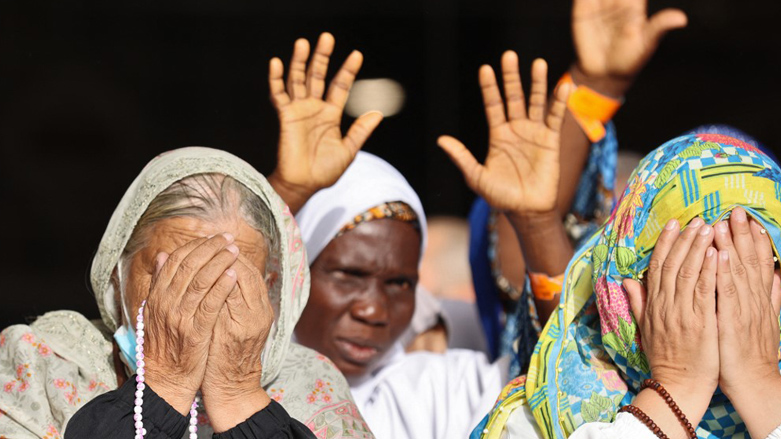A Kurdish pilgrim dies in Saudi Arabia
Thousands of Iraqi and Kurdish pilgrims began their Hajj rituals in early June, which is expected to continue until June 28, the first day of Eid al-Adha.

ERBIL (Kurdistan 24) – A Kurdish female pilgrim died at one of Mecca’s hospitals in Saudi Arabia on Tuesday after suffering a heart attack amid undertaking the religious ritual, the Kurdistan Regional Government (KRG) announced.
Rahima Qadir, 66, had previously suffered from an underlying heart condition and undergone a procedure in Kurdistan Region, according to a press release from the KRG Ministry of Endowment and Religious Affairs.
While undertaking the Hajj rituals, the Arabic word for pilgrimage to Mecca, her health deteriorated and she was taken to King Abdul Aziz Hospital in Mecca, where she received medical attention, according to the statement.
Ms. Qadir was from the Rapareen area in Sulaimani province. She had recently arrived in Saudi Arabia along with more than 4,000 Kurdish pilgrims who are undertaking Hajj this year.
Read More: First batch of Kurdistan Region pilgrims embarks on Hajj
It is not clear whether her body will be returned back to the Kurdistan Region, or buried in Saudi Arabia
Thousands of Iraq and Kurdish pilgrims began their Hajj rituals in early June, which is expected to continue until June 28, the first day of Eid al-Adha.
Performing Hajj is one of the five pillars of Islam, obligating all able-bodied and financially eligible Muslims to undertake the ritual once in their lifetime.
Millions of Muslims visit the holy sites in Makkah and Madinah annually on the eighth day of the Dhu Al Hijjah, the last month of the Islamic calendar.
The most famed part of the rituals is circumambulating the Kaaba shrine, which is considered the holiest site on the planet by Muslims.
While the pilgrimage only takes six days, most Muslims spend weeks praying in the twin holy cities. Many Muslims also participate in a shorter form of pilgrimage, called Umrah, at any other time of the year.
The annual religious ritual generates $12 billion in revenues for the oil-rich monarchy.